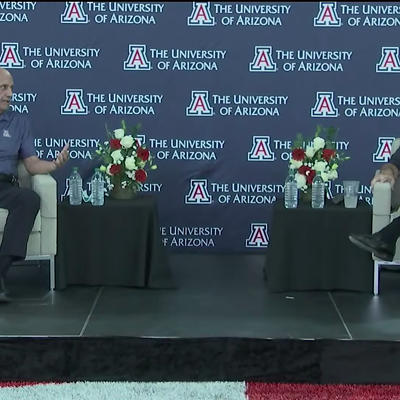Women in Arizona are paid 82 cents for every dollar men make—an average deficit of $7,647 a year for each woman working full-time.
That's appalling.
In 2012, there is absolutely no sensible explanation for why the wage gap exists. This is a basic issue of fairness, and fixing it should be common sense. Yet, Congress couldn't come together earlier this month to find a solution.
Republicans wouldn't support a common-sense solution for something a vast majority of the country thinks is a problem, because it was a Democratic bill. Meanwhile, Democrats didn't seek common ground with Republicans, because they wanted to use it to attack Republicans.
Stop me if you've heard this one before.
It's reprehensible that we have to legislate equal pay and opportunity for women—that should be a given. But since the wage gap indisputably exists, this is something we need to solve.
The partisanship in Washington, D.C., is hurting all of us. Common-sense solutions are neither common nor make sense in the toxic environment that rules policymaking. And what bothers me the most about that—more than the ugliness, divisiveness and embarrassing behavior—is we all pay the consequence.
U.S. Census Bureau data shows the wage gap persists across industry, education level and experience. And because that gap is so pervasive, there are huge ripple effects throughout our economy.
There are 429,000 families in Arizona with children 18 or younger that wholly or partially depend on the mother's earnings. And as a whole, Arizona women lose more than $6 billion every year because of the wage gap. That has far-reaching and scary economic consequences for each Arizona household, vastly reducing the financial security and spending power of each home.
If the wage gap were eliminated, each of those families would have additional money to pay for, on average: five months of mortgage and utilities payments, 22 months of health-insurance premiums, 2,000 gallons of gas, or 58 weeks of food. After looking at those numbers, there is not a credible argument for allowing the wage gap to continue. It's shameful that we have allowed this to go on, and that Washington is too polarized to do anything about it.
I was raised by two strong women, my mom and grandmother, who worked hard and did all they could to provide for me and my siblings—even though they confronted the same economic challenges that so many women-led households face.
It doesn't make any sense that women are getting almost 20 percent less pay for the same work, especially mothers trying to take care of their kids.
Passing the Paycheck Fairness Act is simply something we need to do. It's long overdue and widely supported. This should be an easy call. But first, we need both sides to start acting more responsibly.
We have to get out of the mindset where policy is viewed only through political lenses, and neither side is willing to move to get things done for the people. If we can get there, the Paycheck Fairness Act is at the top of the list of obvious solutions that have evaded the chronic politicians in Washington.










